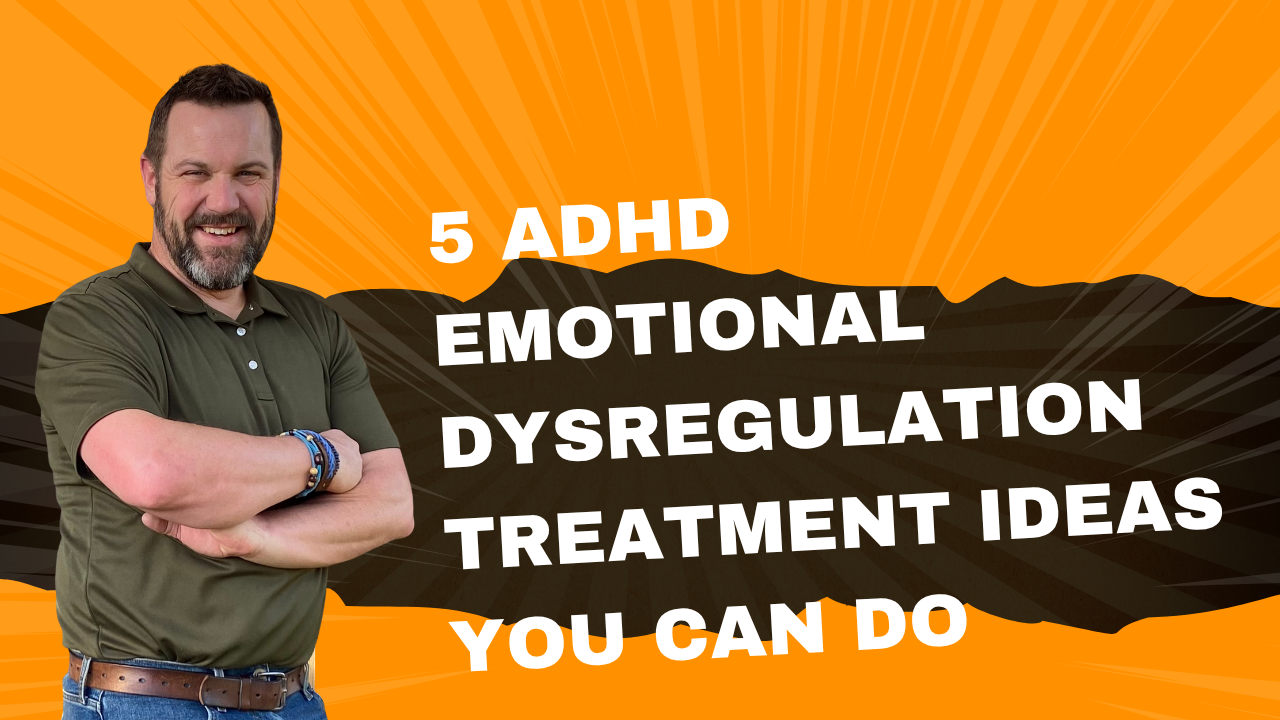
5 adhd emotional dysregulation treatment ideas you can do
Nov 13, 2025If you’re navigating life with a teen who has ADHD, you already know the emotional waves can feel intense — not just for them, but for the whole family. ADHD emotional dysregulation treatment can feel overwhelming to figure out, but with the right tools, real change is possible.
After nearly 20 years as an occupational therapist working with teens and families, I’ve seen firsthand that emotional regulation is absolutely teachable. With the right strategies, your teen can feel more in control, more understood, and more capable — and you can experience the calm, connection, and confidence you’ve been longing for at home.
Today I want to share five strategies that consistently help teens build emotional regulation skills in a way that feels accessible, doable, and growth-oriented.
1. Mindfulness as ADHD Emotional Dysregulation Treatment
Mindfulness is one of the most powerful tools a teen — or any of us — can learn.
Kids with ADHD often react quickly, and those reactions can feel explosive. Mindfulness teaches them (and you) to pause, even for a moment, so there’s space between what happens and how they respond. In that small space, choice becomes possible.
With practice, your teen can shift from automatic reactions to intentional responses. They begin to realize they don’t have to say something they’ll regret or let emotions run the show. This single skill can transform not just behavior, but confidence and connection.
According to science-backed emotional regulation strategies for teens with ADHD , mindfulness practices are among the most effective tools for emotional self-regulation.
2. Journaling for Self-Awareness in ADHD Treatment
Journaling is a gentle, effective way for teens to notice their patterns, emotions, and triggers. And it doesn’t have to look like pages of writing.
Your teen can journal with:
-
simple drawings
-
a few sentences
-
daily wins
-
bullet-point reflections
What matters is expression. When they write things down, their experiences become more tangible. They start recognizing what helps them, what overwhelms them, and how their choices shape their day.
Over time, journaling builds self-awareness — a foundational skill for regulation — and activates the parts of the brain responsible for planning, reflection, and better decision-making.
This ties into how activities like journaling help strengthen emotional awareness and decision-making skills.
Want more support on this? Read our Parent’s Guide to ADHD Regulating Emotions Without Yelling .
ADHD Emotional Dysregulation Treatment Must Include Breathwork
Deep breathing is a tool many teens initially roll their eyes at — until they actually feel the difference it makes.
When a teen with ADHD feels overwhelmed or flooded, their body is sending strong signals to the brain. Deep breathing reverses that cascade. As the breath slows and deepens, the body begins to calm, and the brain shifts out of “alert mode.”
This creates:
-
fewer impulsive reactions
-
more emotional control
-
an overall sense of stability
Pairing deep breathing with mindfulness enhances both practices, giving your teen a reliable way to recenter when emotions feel overwhelming.
ADHD Emotional: Movement as a Core Part of Treatment
Movement isn’t just helpful for teens with ADHD — it’s essential.
Their brains thrive on sensory input, and physical activity provides exactly that. Whether it’s dance, sports, swimming, martial arts, running, or simply play, movement delivers organizing input to the muscles and joints that helps calm the nervous system.
The result?
A teen who feels more settled, more focused, and more capable of managing their emotions.
Learn how ADHD and anger control are also influenced by physical dysregulation in the nervous system.
Teens with ADHD often struggle with self-esteem — not because of who they are, but because of how often they’ve felt misunderstood. Supportive social environments can change everything.
Look for:
-
encouraging family interactions
-
positive peer groups
-
clubs, teams, or interest communities
-
church or other gathering spaces
-
mentors or supportive adults
When your teen feels valued, included, and uplifted, their emotional resilience expands. The more they experience connection, the more they thrive — both at home and beyond.
As shown in how social connection improves mental health in neurodiverse teens ,
Curious how you can support this at home? Explore our ADHD Parent Coaching Program, How ADHD Parent Coaching Transforms Stress into Calm at Home.
Ready to Support Your Teen’s Emotional Growth?
If you found these strategies helpful, share them with another parent who could use a little more peace and clarity today. And if you’re ready for more support, guidance, and tools tailored to your family, I invite you to reach out.
My parent coaching program has helped countless families create more harmony, confidence, and connection — and if you’re feeling the pull, your family could absolutely be next.
You don’t have to navigate this alone.
And your teen doesn’t have to struggle alone.
There is so much possibility ahead.
Connect with me and find out how my Emotionally Empowered Parent Coaching Program can help you to success and calm in your parenting of teens with ADHD
Stay connected with news and updates!
Join our mailing list to receive the latest news and updates from our team.
Don't worry, your information will not be shared.
We hate SPAM. We will never sell your information, for any reason.
